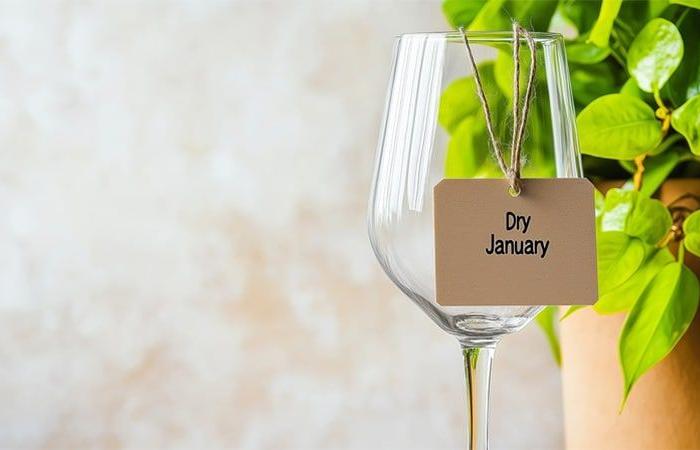As the “Dry January” campaign or January challenge begins its sixth edition, the first results of a study on its impact among the French have been made public. And they are quite encouraging.
Followed by nearly 4.5 million French people
For the sixth consecutive year, the Dry January challenge returns this year in 2025. Supported by civil society, this campaign invites the French to stop all alcohol consumption during the first month of the year. “Dry January” was launched in 2013 in Great Britain. In 2024, this challenge was followed by nearly 4.5 million French people, according to the first results of a study on the issue, JANUARYled by Le Vinatier – University Psychiatry Lyon Métropole and its partners with the support of the National Cancer Institute. Published on December 2 in the journal Frontiersthe study Prevalence and characteristics of participants in dry january 2024 : findings from a general population survey in France targeted a representative sample of 5000 adults, including 4071 who consumed alcohol in the past year. 61% of these alcohol consumers had heard about the January challenge. The upper social classes (CSP+) were more aware of dry January (77%) than the others (58%). “Knowledge also differed depending on the region, ranging from 58% in the South and North-East to 65% in Ile-de-France,” add the authors.
12% of alcohol consumers participated
Participation in Dry January has been encouraging, with 12% of alcohol consumers taking part, a marked increase on earlier campaigns.
People who were aware of the campaign (compared to those who were not) were more likely to self-assess their alcohol consumption as “at risk” (20% vs. 13%). Participants in the January challenge, compared to those who did not practice it, were also more concerned about the effects of alcohol on health (41% versus 29%), about their control (or lack of control) over alcohol consumption (28% versus 15%) as well as dangerous consumption (22% versus 18%) or harmful consumption/possible dependence (19% versus 7%). In terms of alcohol consumption, participants in the January challenge reported drinking less frequently, but consumed larger quantities.
18-34 years old above all
In generational terms, the 18-34 year old group is more inclined to participate in the January challenge (30%) than the 35-54 year olds (18%) or even those over 55 (13%). On the other hand, gender and professional status do not influence the profile of participants in the January challenge. “Overall, these results confirm that temporary alcohol abstinence (TAAC) campaigns, such as Dry January, can attract primarily people who are at higher risk of alcohol-related problems. These individuals may recognize the negative impact of alcohol on their health and well-being, leading them to seek ways to regain control of their drinking habits,” the authors note. Most Dry January participants aimed for abstinence (81%) while 19% aimed to reduce their alcohol consumption, they continue. Dry January appears to fulfill one of its key aims by attracting people at high risk of alcohol-related harm, i.e. those most likely to benefit from such a campaign, they conclude .
Promote behavior changes
The authors also point out that alcohol consumption is one of the main risk factors for premature mortality, morbidity and social harm. In France, a national survey conducted in 2021 indicated that 85% of the adult population had consumed alcohol in the past year, with 39% and 8% reporting weekly and daily consumption, respectively. 54% reported drinking alcohol in the past week and 22% exceeded low-risk drinking guidelines. Also, “temporary alcohol abstinence campaigns (TAAC), which encourage the general population to abstain from alcohol for a specific period (generally 1 month), could represent promising and profitable initiatives to promote behavioral changes and improve general health,” consider the authors.
Lack of government support
Who also regret the lack of government support in promoting this temporary alcohol abstinence campaign: “Dry January in France was mainly promoted by charitable associations in the health sector and did not received government support. The French government’s withdrawal from the initial launch deprived the campaign of necessary funding for advertising, including a dedicated website and smartphone app that contribute to social contagion and dissemination, which have proven essential in improving awareness and participation in the campaign,” regret the authors. In the absence of the government, Dry January will benefit this year from the support of the new Minister of Health Yannick Neuder. Questioned by his detractors who accused him of playing into the hands of wine lobbies, the cardiologist stated at the end of December (before going to Mayotte) that he would not consume alcohol in January and would participate in this collective challenge. , “ like every year “, specifying that he would do so ” on a personal basis », therefore without committing his ministry.
Register for newsletters de Medscape : select your choices






